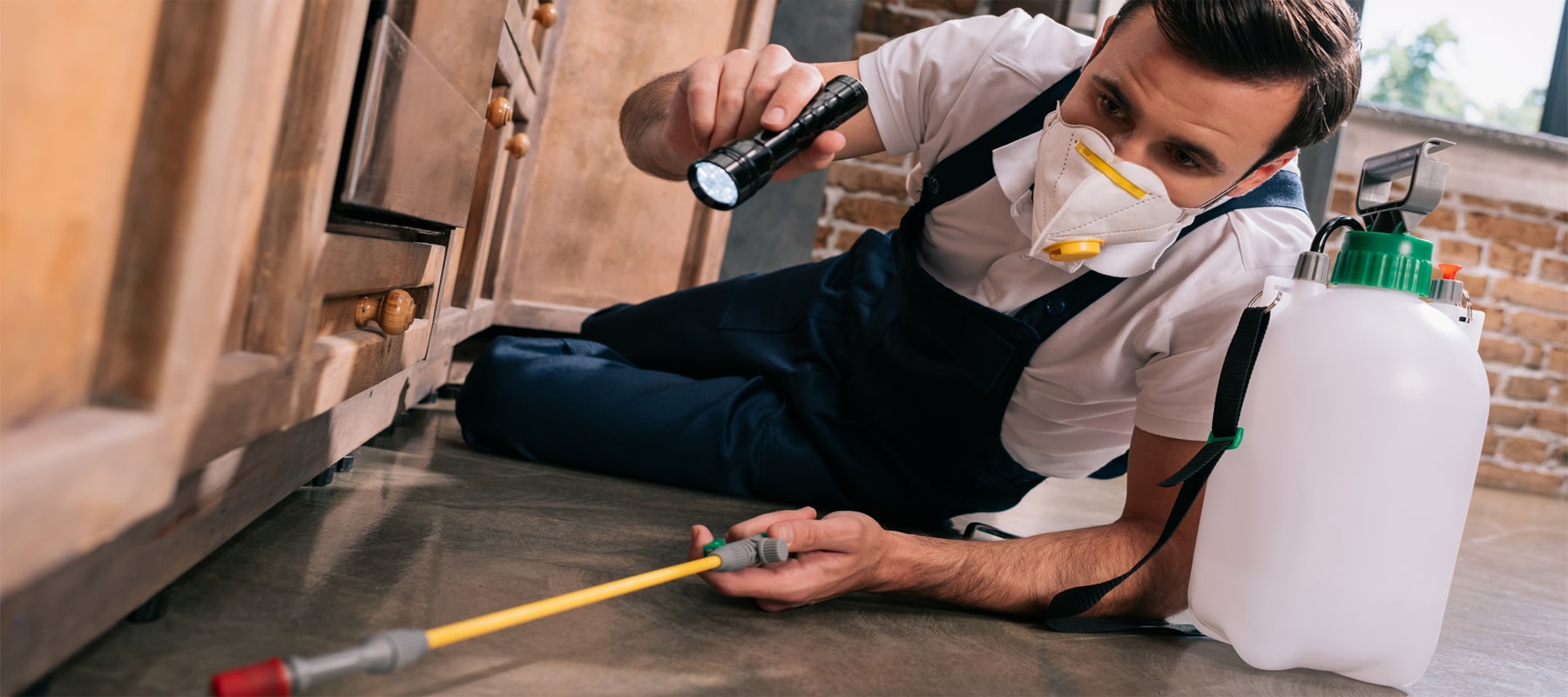How Long Does it Take for Pest Control Treatments to Work? Pest Control Results Timeline
Last Updated: January 21, 2022
On This Page
When you have a pest problem, you want it to go away as quickly as possible, which begs the question: How long does it take for pest control to work? The answer depends on the type of pest problem you have and how severe the infestation is.
Do You Need Multiple Treatments? #
Typically, pests are a threat all year round. There are some that are active every season, such as ants and spiders, while others move indoors or outdoors as the weather changes. Some pests invade houses to escape inclement weather or in search of food and some just enter homes any time they see an opening.
The majority of pest problems require more than a single treatment. Many insect eggs and larvae are not affected by the same treatment that kills adults, so additional or combination treatments may be necessary. Some pests, such as ants, leave an invisible odor trail, so even if you kill all of the bugs inside, others can follow the trail leading into your home.
How Long Will it Take? #
There are a number of factors that impact the amount of time it takes for pest control treatments to work. The severity of the pest problem is an important aspect, as smaller pest problems are easier and quicker to fix than larger ones. For example, a single nest of ants is easier to dispose of than a colony with multiple nests.
The type of pest you have also makes a difference, as some pests are more difficult to eradicate than others. Pest type also helps to determine the extermination/removal method, which in turn helps determine how long it takes to see results. Poison bait stations take about 24 hours to kill cockroaches, with any that survive carrying the bait back to the colony and spreading the poison to the other insects. This extermination method generally takes about a week to kill the entire nest.
However, severe or resistant pest infestations may require different techniques to exterminate them. This is where follow-up visits come in, allowing the exterminator to apply continuous treatments to help eliminate all pests. When follow-up treatments are required, it is important that you follow any advice or instructions the exterminator gives you to keep pests at bay. In truth, pest control timelines are highly specific to each individual case.
How Much Do Pest Control Treatments Cost? #
The cost of pest control treatments depends on the type of pest you have, severity of the infestation, number of treatments required, and the company you hire.
The following pricing guide is by pest-type to provide an idea of what you can expect to pay for your pest control treatments.
- Ants: Regular ant removal has an average cost around $250, but carpenter ants (which cause more damage and are more difficult to remove) may cost as much as $1,000 to remove.
- Bed bugs: These insects are difficult to locate and remove, with bed bug extermination having an average cost of $1,500.
- Bees: The cost of bee removal often depends on the type of bee. Honey bees are often able to be taken by beekeepers or experienced exterminators who can bring them to beekeepers. Bee extermination or removal has an average cost between $100 and $300.
- Cockroaches: Most people are not big fans of roaches and want them gone as quickly as possible. Cockroach removal has an average starting cost around $250.
- Mice: Damaging, unsanitary, and a general nuisance to live with, mice are something you want gone right away. Most exterminators offer humane removal methods as well as extermination services, with costs averaging around $150.
- Rats: Larger than mice and carrying more diseases, rats present a serious hazard to your home and health. Rat removal has an average starting cost around $300.
- Termites: Costing homeowners around the country millions of dollars in repair costs each year, termites must be dealt with swiftly. Termite extermination has an average cost around $500.
- Wasps: These insects are highly dangerous; even more so if you or anyone in your family is allergic. It is important that you contact a pest control service right away if you have wasps on your property. Wasp removal has an average cost between $200 and $500.
After Treatment #
There are a number of steps you can, and should, take following pest control treatments, the first of which is to wait until the approved time to enter your home if you had to vacate it. This is for your safety, as prematurely returning may have serious health repercussions.
Despite what you might think, it is also important that you not clean immediately, as this could wipe off treated areas and reduce the treatment's effectiveness. However, when checking for pests (which you should always do post-treatment), you still need to dispose of any dead pests, as they can attract live ones.
While these steps are by no means sure-fire ways to keep pests away, they do help to reduce the odds of pests returning or new ones entering.
